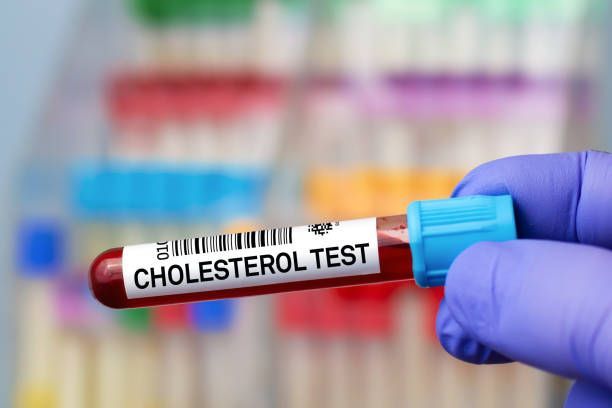What is Hormonal Imbalance?
Hormonal imbalances affect millions of people worldwide, causing a range of symptoms that can disrupt daily life, from fatigue and mood swings to weight changes and reproductive issues.
Understanding the causes, symptoms, and potential health risks associated with hormonal imbalances is an important step in recognizing when to seek medical attention.
What Is Hormonal Imbalance?
Hormones are chemical messengers produced by the endocrine system that regulate essential bodily functions, including metabolism, mood, sleep, and reproductive health. A hormonal imbalance occurs when the body produces too much or too little of a particular hormone, disrupting these processes.
Some of the most commonly affected hormones include:
- Insulin – Regulates blood sugar levels.
- Cortisol – Controls the body’s response to stress.
- Thyroid hormones – Influence metabolism and energy levels.
- Estrogen and progesterone – Affect menstrual cycles and reproductive health.
- Testosterone – Impacts muscle mass, energy, and libido.
Various factors, including medical conditions, lifestyle choices, and genetics, can contribute to hormonal imbalances. Early detection can play a critical role in managing symptoms effectively.
Symptoms of Hormonal Imbalance
The symptoms of a hormonal imbalance can vary widely, depending on which hormones are involved.
Common signs include:
- Unexplained Weight Changes – Rapid weight gain or loss could be linked to thyroid dysfunction or insulin resistance.
- Mood Swings and Anxiety – Fluctuating levels of estrogen, testosterone, or cortisol can affect emotional well-being.
- Irregular Menstrual Cycles – Changes in menstrual patterns may signal an imbalance in estrogen or progesterone.
- Fatigue and Low Energy – Persistent tiredness could point to thyroid issues, adrenal fatigue, or low testosterone.
- Hair Loss or Excessive Hair Growth – Shifts in androgen levels can result in hair thinning or increased facial and body hair.
- Sleep Disturbances – Poor sleep or insomnia may be connected to cortisol imbalances or melatonin deficiencies.
- Acne or Skin Problems – Hormonal shifts can trigger breakouts and other skin concerns.
If you notice any of these symptoms persisting or worsening, it may be time to consult a healthcare provider for further evaluation.

Common Causes of Hormonal Imbalance
Several factors can contribute to hormonal imbalances, including:
- Chronic Stress – Excess cortisol production can disrupt the balance of other hormones.
- Poor Nutrition – Diets lacking essential nutrients can impair hormone production and regulation.
- Medical Conditions – Disorders such as diabetes, thyroid disease, and polycystic ovary syndrome (PCOS) often involve hormonal irregularities.
- Aging – Natural hormone level shifts occur with age, especially during menopause or andropause.
- Medications – Some prescriptions can interfere with hormone levels.
- Lifestyle Factors – Lack of exercise, sleep disturbances, and unhealthy habits can all influence hormonal balance.
Identifying the underlying cause is key to finding an effective management or treatment plan.
How to Help Prevent Hormonal Imbalance
While not all hormonal imbalances can be prevented, adopting healthy habits can reduce the risk and support better hormone regulation.
Here are a few ways to help maintain balance naturally:
- Eat a Balanced Diet – Focus on whole foods rich in fiber, healthy fats, and lean proteins. Nutrients like magnesium, vitamin D, and omega-3 fatty acids are especially important for hormone health.
- Manage Stress – Chronic stress can wreak havoc on hormone levels. Incorporating relaxation techniques like meditation, deep breathing, yoga, or regular downtime can help protect your hormonal health.
- Get Regular Exercise – Physical activity helps regulate hormones related to stress, metabolism, and appetite. Aim for a combination of cardio, strength training, and flexibility exercises.
- Prioritize Sleep – Hormones like cortisol and melatonin are closely linked to sleep patterns. Strive for 7–9 hours of quality sleep each night to support overall hormonal balance.
- Maintain a Healthy Weight – Both obesity and being underweight can disrupt hormonal health. A balanced diet and regular exercise can help maintain a healthy weight range.
- Limit Toxin Exposure – Environmental toxins found in plastics, pesticides, and household products may interfere with hormone function. Choose natural, organic products when possible and minimize unnecessary chemical exposure.
- Stay Hydrated – Proper hydration supports metabolic and endocrine functions, helping hormones stay balanced.
- Avoid Excessive Caffeine and Alcohol – High intake of stimulants and alcohol can negatively affect hormonal health over time.
Small, consistent changes in your daily routine can make a big difference in supporting long-term hormone balance.
Health Risks Associated with Untreated Hormonal Imbalance
Ignoring hormonal imbalance symptoms can lead to more serious health issues over time, such as:
- Type 2 Diabetes – Prolonged insulin resistance can develop into diabetes.
- Osteoporosis – Low estrogen levels, particularly in women, can cause bone density loss.
- Cardiovascular Disease – High cortisol and insulin levels can increase the risk of heart disease.
- Infertility and Reproductive Challenges – Hormonal imbalances can interfere with fertility and reproductive health.
Early intervention can help minimize these risks and improve overall quality of life.
When to Seek Medical Care

If you are experiencing unexplained symptoms that interfere with your daily life — such as severe fatigue, mood disturbances, sudden weight changes, or irregular menstrual cycles — it’s important to seek medical evaluation. A healthcare provider can perform the necessary tests to check hormone levels and recommend appropriate next steps.
Walk In and See Us Today
At UrgiClinic, we’re here to support your overall health and well-being. If you're feeling unwell or experiencing symptoms that concern you, don’t hesitate to walk in for prompt care and evaluation. No appointment necessary — just visit us when you need care.













